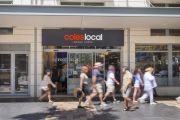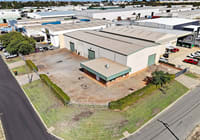
Charter Hall plots research hub in Sydney's south-west
Charter Hall is laying the foundations for an emerging health and medical research hub in Sydney’s south-west as it kicks off the first stage of a joint $350 million project with Western Sydney University.
The busy ASX-listed fund manager has teamed up with the university, which is the land-owner, to co-develop the Westmead project. Plans include three mid-sized towers, delivering 43,000 square metres of space. The project has been named Innovation Quarter, or iQ.
The first of the towers, an 11,000-square-metre building, has three-quarters pre-committed to WSU and the CSIRO. It will be sold down into Charter Hall’s PFA fund, through a fund-through arrangement.
The Charter Hall-run fund takes a coupon-style return through the development, with a yield of around 5.5 per cent.
With first building under way, the precinct is already taking on the character of a health research hub. Westmead hospital and the station are both nearby and a new metro station, as part of the Metro West rail line, is planned too.
Occupants in the first tower will include research staff from CSIRO’s e-Health, Nutrition & Health program and its Future Science Platform. Three health-focused institutes from the WSU will join them, including the MARCS Institute for Brain, Behaviour and Development.
Charter Hall is in the market to fill the next two towers. Health and medical research along with pharmaceutical firms are potential tenants, according to managing director David Harrison.
“Obviously COVID has accelerated the focus on research and health. We’re going to see quite an increase in public and private research organisations that are focused on the health industry,” he told The Australian Financial Review.
Charter Hall’s investment effort in Sydney’s south-west also illustrates a wider theme, as higher education institutions team up with commercial property developers.
“Broadly, the view is that universities will continue to take advantage of their land assets,” Mr Harrison said.
“I think you’ll see more and more universities that are accessing their balance sheets and turning these balance sheet assets into development profits and income-producing assets, while also partly occupying the buildings.”
With the coronavirus pandemic leaving universities under pressure as revenue from foreign students dries up, there may also be scope for sale-and-leaseback style deals in the sector, Mr Harrison said.
“Governments, education facilities, corporates, are all going to pursue further sale and leasebacks so they can invest that capital in the operating business that they are actually set up to provide.”
Major sale and leaseback deals have featured heavily in Charter Hall’s recent acquisitions, including with Telstra, BP Australia and Ampol.











